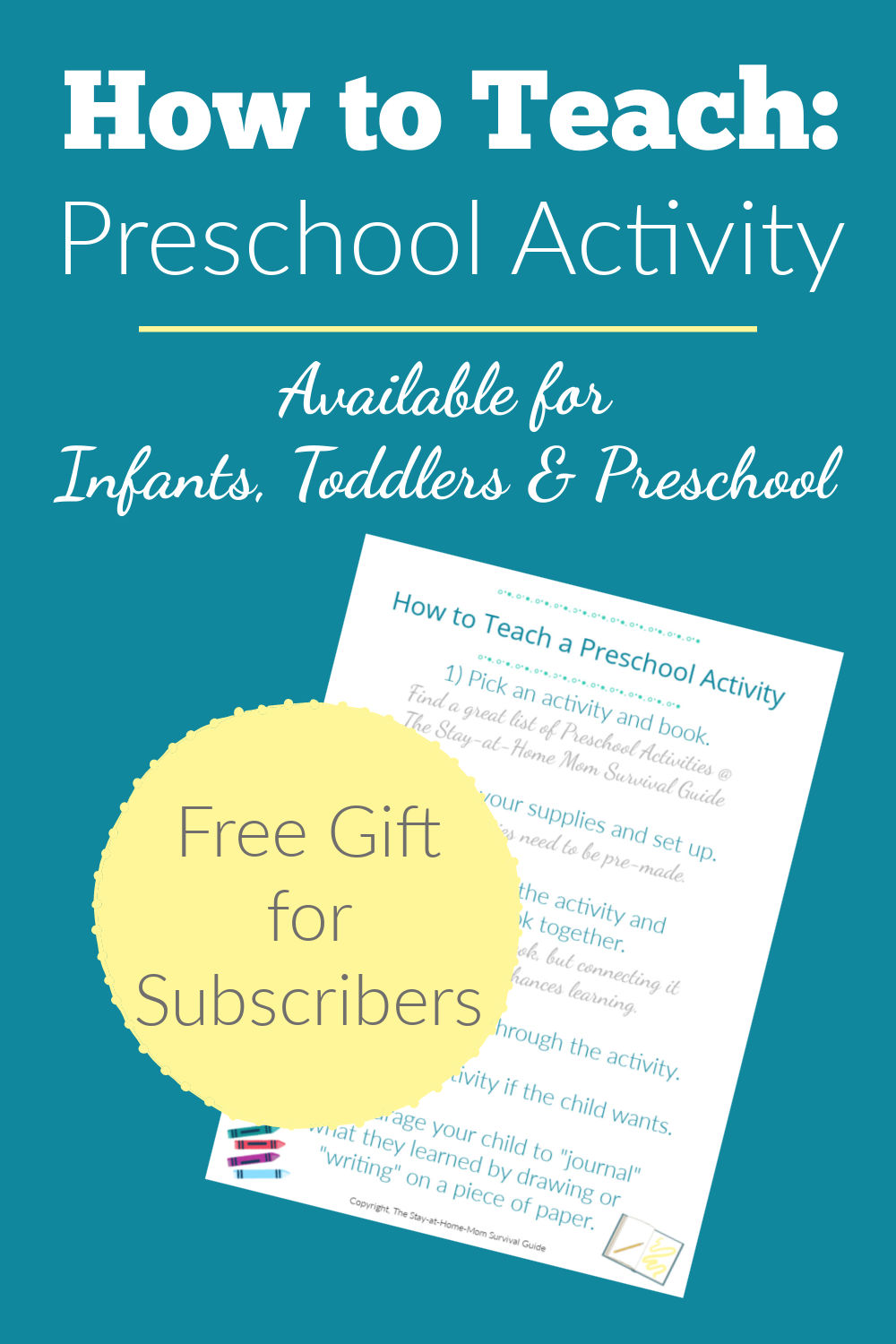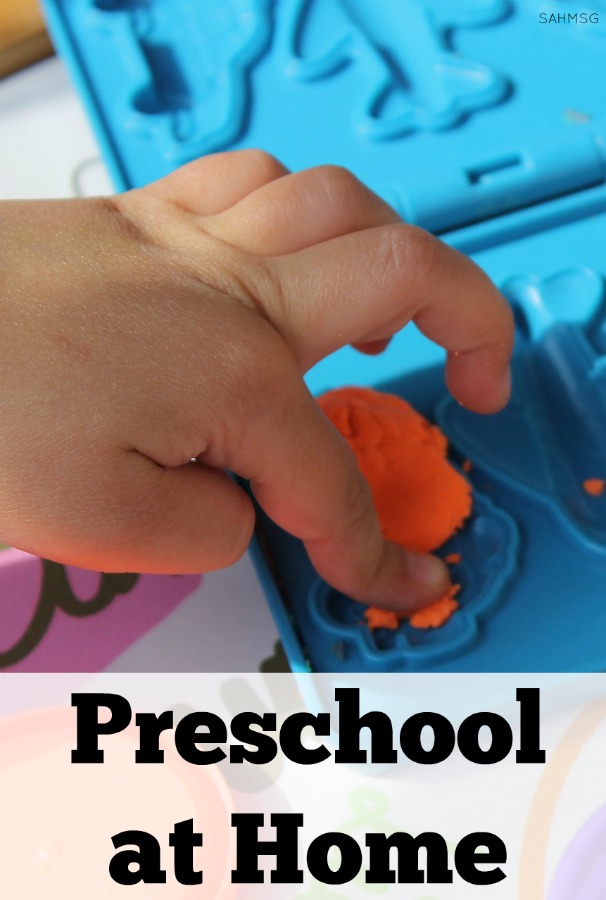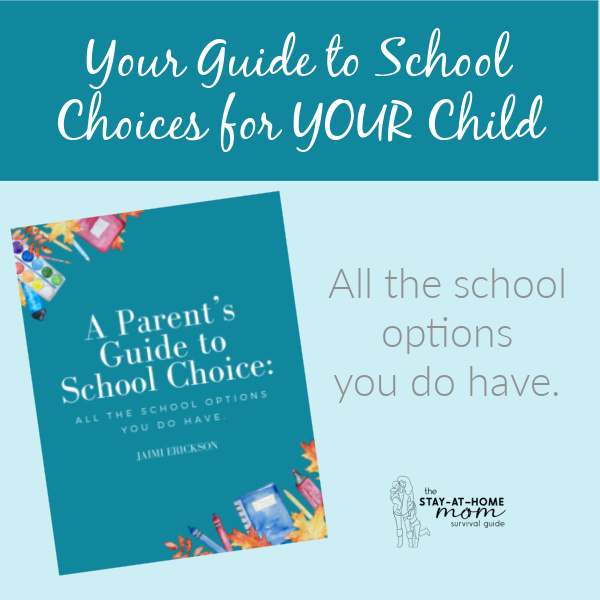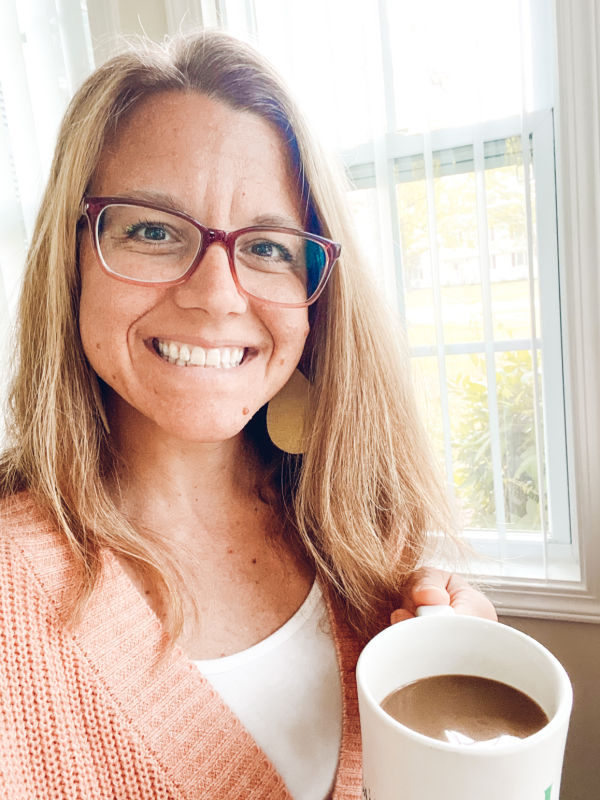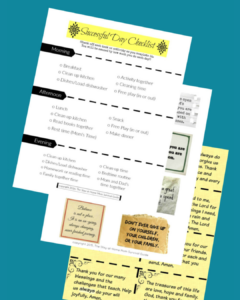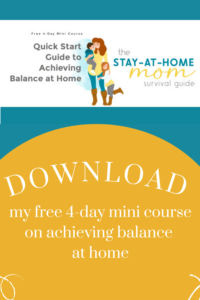
I have always taught my children at home with learning activities when they were infants, toddlers and preschoolers. After looking around for a preschool in the San Diego area, we decided that preschool at home was going to be best for my daughter and for our family as a whole.
My oldest son was in public school at that time. His schedule locked us into a regular routine.
Having twins on top of the older two, as well as some concerns over attention span, guided me to make the decision to simplify our life as much as we could. That is why after thinking about sending my daughter to preschool, we ultimately chose home.
If you are trying to decide whether to send your child to preschool or not, check out these tips before you pay for preschool.
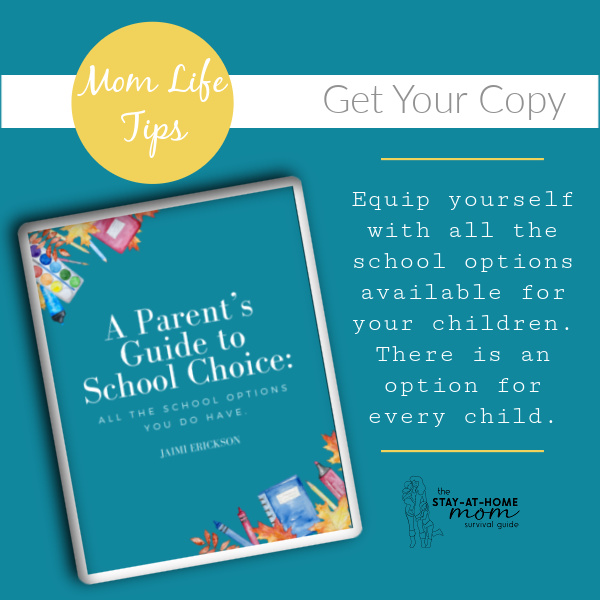
The resources you will find on this page are the activities day-by-day that we used as our preschool at home curriculum.
I taught preschool before becoming a mom. I looked back at my preschool assessment form and my kindergarten assessment form to guide my lessons, but mostly I followed my daughter’s lead on what she needed to learn. She was reading before entering kindergarten, so I’d say these activities worked well!
If your child is less than 3, head over to the toddler curriculum for learning activities that will be best for your child. The activities here are for ages 3 and up.
I don’t think adult-guided teaching is a bad thing. It can mesh well with child-directed learning. The two can exist together. If you need to gain insights into your child’s learning abilities, knowing where to take an IQ test could provide you valuable insights into your child’s learning needs.
After all, I know what my daughter needs to learn. I know what her interests are, so I just combine the two and we get a beautiful child-centered curriculum that cost me nothing but (basically) construction paper and markers.
You will need the FREE How to Teach a Preschool Activity guide free for subscribers. It will give you an outline for successfully teaching a preschool activity.
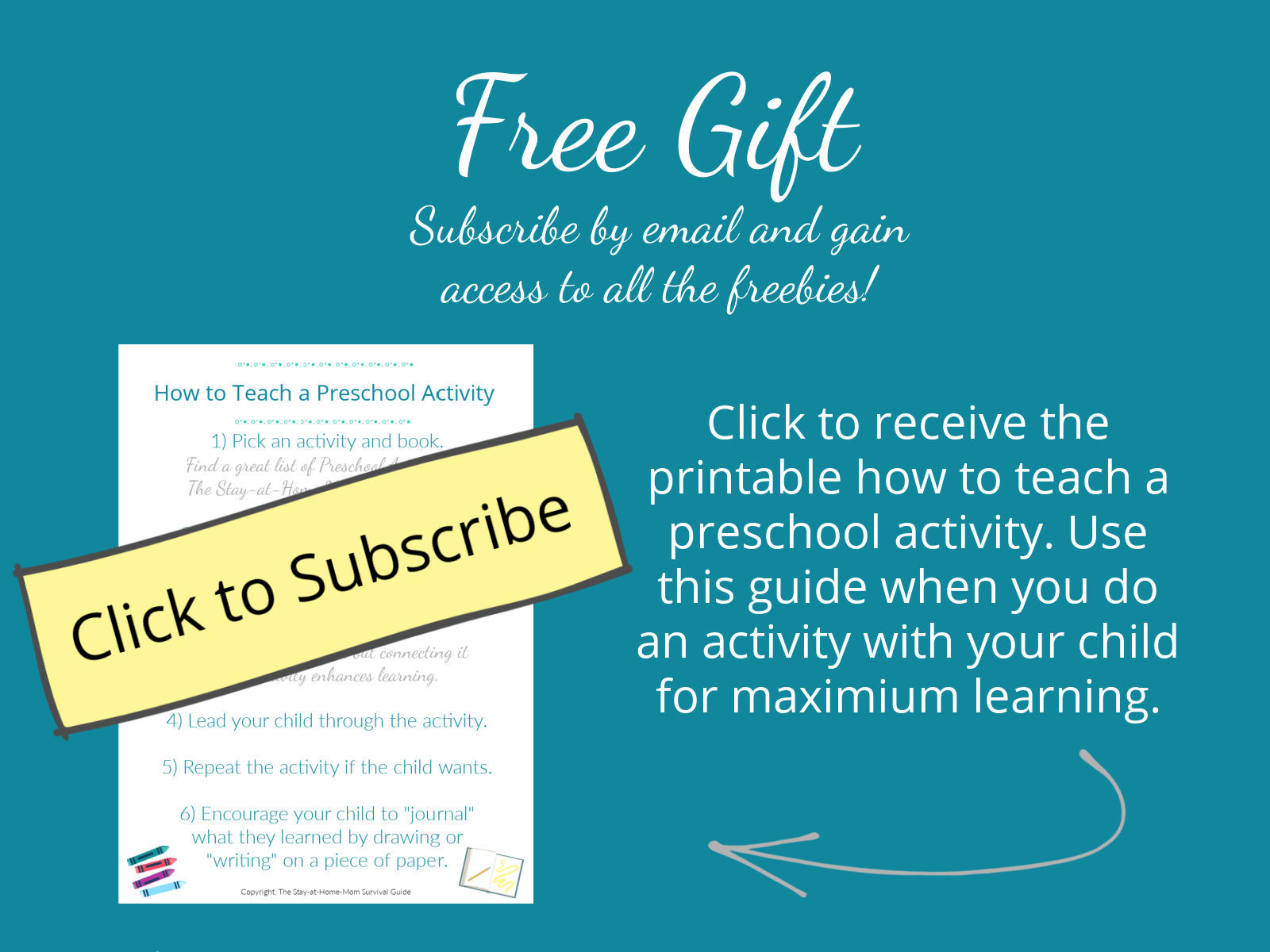
Preschool at Home Schedule
Every day of preschool we started with calendar time and a few songs and poems. Preschool songs can be fun seasonal songs or simple songs that teach big concepts such as the ABC song.
We only worked on focused preschool activities about 2-3 days per week. My daughter was 4 ½ when we started preschool at home. She started Kindergarten knowing how to read.
I loved that preschool at home was flexible. There was no driving to drop off and then back to pick up. If we had a playdate or appointment in the morning, we could do our preschool time in the afternoon. We also had the ability to cut the activity time short, or extend it based on my child’s interest and my time.
Let’s be honest, this is Preschool, it is not SATs, it will not make-or-break your child’s future learning. There is information that shows the universal preschool idea does not succeed in helping children become great students, so moms and dads, you are the key.
Your time with your child is the key to building a solid platform from which your child can take on any learning or personal challenge that comes there way in life.
Preschool at Home Curriculum
Every Day:
Calendar and Shared Reading/Song time
Activity of the Day (Listed under Preschool at Home Day-by-Day activities below.)
Read books together. (Check out books from the library that are seasonal. These will teach a lot of science and social studies concepts. Many of the day-by-day activities have suggested books linked in each article for you to use as a guide too.)
Preschool at Home Day-by-Day
These activities can be done as the Activity of the Day. Try for one activity per day after your calendar/song time and before the journal time. If your child grasps the concept well move on to the next day’s activity if you like. I like to reuse these activities after a few have been attempted. After learning 2-3 of them, set them up on the dining room table as centers. Read about how we use activity centers in our preschool.
Use the Preschool Activity Teaching Guide to help lead you through a complete activity. Then do your daily activities plus 1 new activity for the first few days.
Day 1: Reviewing the Alphabet
Day 2: Alphabetical Order Activity
Day 3- 29: Exploring a Letter of the Day and Letter Lesson Plans
Day 30: Set up alphabetical order and reviewing the alphabet as a review.
Day 31: Number Recognition: Learning Numbers
Day 32: Counting with Pumpkin Seeds,
Day 33: Counting with Feathers
Day 34: Set up a few previous activities as learning centers for review.
Day 35: Counting with Flowers and Butterflies
Day 36: Learning to Count
Day 37: Learning Numbers with Games
Day 38: Learning to Spell Your Name
Day 39: Spell Your Name Hopscotch (If weather prevents outdoor time for this one, substitute the indoor hopscotch game. Then, do the name hopscotch on a good weather day.)
Day 40: Snowball Toss Indoors for Hand-Eye Coordination.
Day 41: Set up a few previous activities as learning centers for review.
Day 42: Sorting and Classifying
Day 43: DIY Alphabet Busy Bag
Day 44: Alphabet Game on the Fridge
Day 45: Writing the Alphabet Practice
Day 46: Electrical Tape Pattern Practice
Day 47: DIY Bean Bag Toss Game
Day 48: Learn to Spell Numbers
Day 49: Set up a few previous activities as learning centers for review.
Day 50: Explore with Art Tools
Day 51: Learn to Spell Color Words
Day 52: Easy Preschool Word Find
Day 53: Learn about Positive Behavior
Day 50: Set up learning centers for review.
Day 51: Have a reading day exploring multiple books and encourage your child to draw a picture of their favorite story of the day.
Day 52: Sensory Play. Pick one of our sensory bins – or multiple – to explore today.
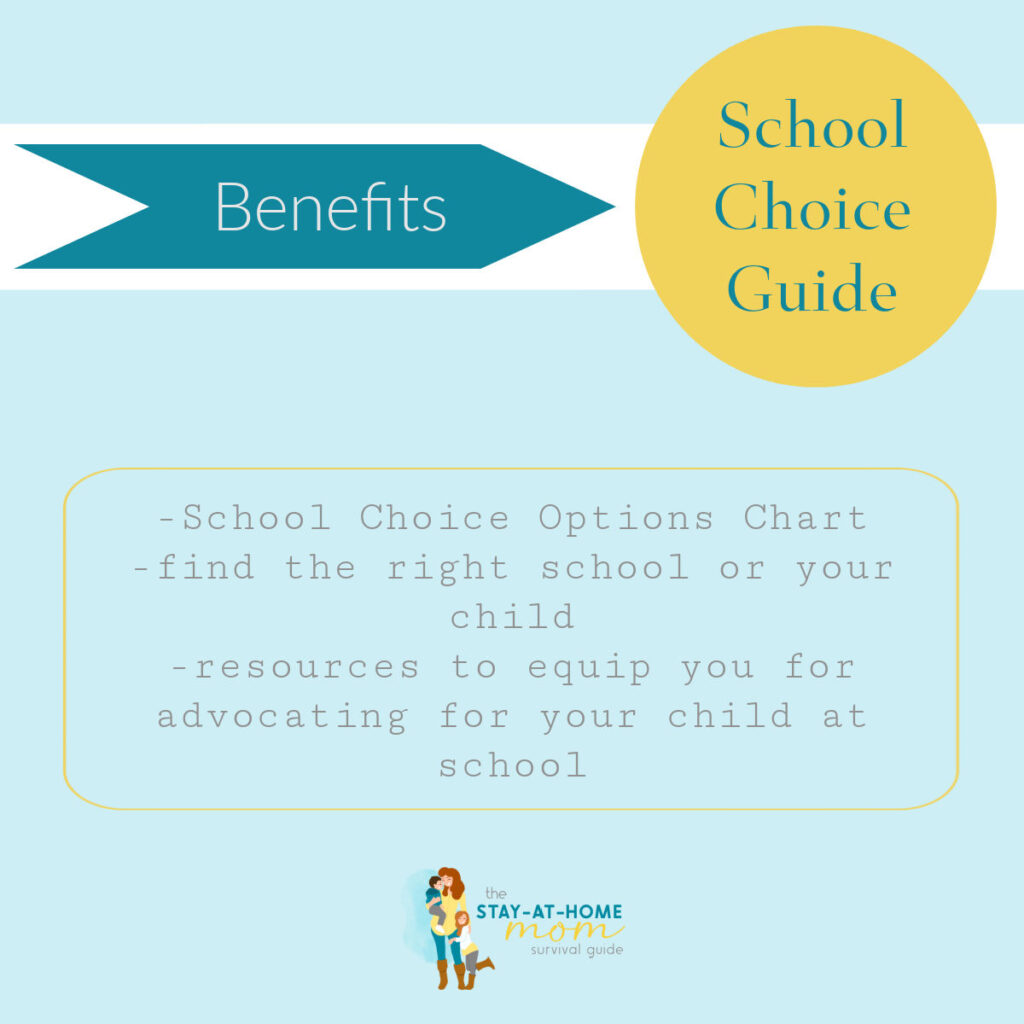
Even more ideas for preschool at home curriculum:
40+ Preschool at Home Activities
Teaching Preschool When You are Not a Crafty Mom
